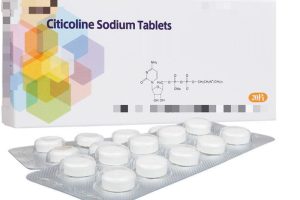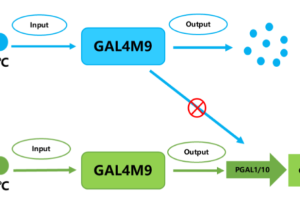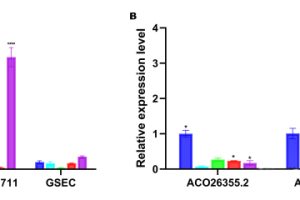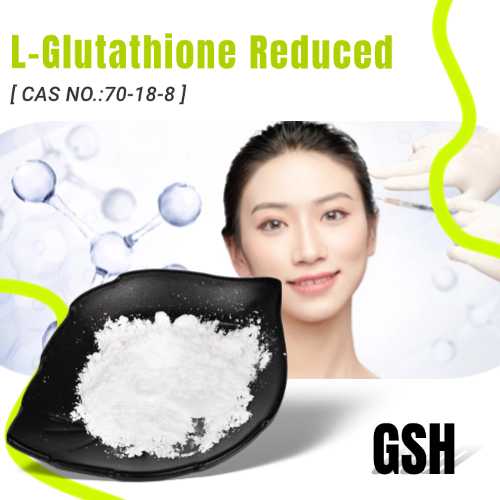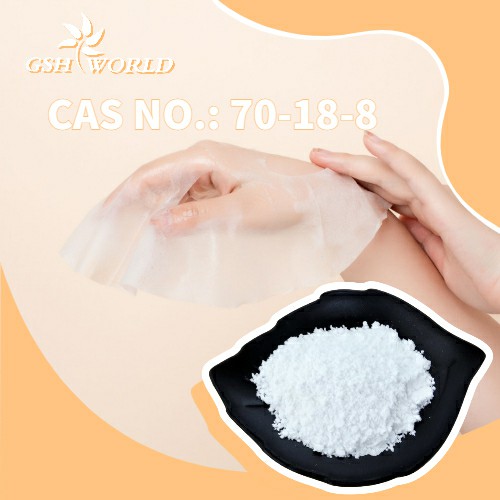What is glutathione?
Glutathione (GSH) is a tripeptide found in living organisms, consisting of three amino acids: Glutamic acid, Cysteine, and Glycine.
Glutathione has a variety of important functions within cells, including but not limited to the following:
- Antioxidants: Glutathione is one of the main antioxidants in the body and protects cells from free radical damage. Free radicals are by-products of the body’s metabolic processes that can damage cell membranes and DNA, leading to cell aging and disease.
- Detoxification: Glutathione is involved in the detoxification process in the body, helping to remove harmful substances from the body such as drug metabolites, toxins and other foreign compounds.
- Immune regulation: Glutathione is essential for the proper functioning of the immune system, it can help enhance the function of immune cells and improve the body’s resistance to disease.
- Protein modification: Glutathione is involved in the sulfhydryl modification of proteins and affects the functional state of proteins.
- Apoptosis regulation: Changes in glutathione levels can affect the process of apoptosis and thus affect the life cycle of cells.
- Maintaining red blood cell health: Glutathione helps red blood cells resist oxidative stress, maintain their function and extend their lifespan.
- Involved in amino acid transmembrane transport: Glutathione can also promote amino acid transport across cell membranes.
Glutathione (GSH) helps with liver health in several ways:
- Antioxidant action: The liver is the body’s main detoxification organ and is constantly exposed to various toxins and free radicals. As a powerful antioxidant, glutathione helps the liver fight these free radicals, reducing the damage caused by oxidative stress and protecting liver cells from oxidative damage.
- Detoxification: The liver is responsible for processing toxic substances in the body, including drugs, alcohol and environmental pollutants. Glutathione is involved in the liver’s detoxification mechanism, particularly in the second stage of the detoxification response, where it is able to bind harmful substances, making them more easily excreted through urine or bile.
- Repair of damaged tissue: When the liver is damaged, glutathione can help repair damaged liver cells and promote healthy cell growth, which helps maintain the overall structure and function of the liver.
- Supporting the immune system: Glutathione is also involved in immune regulation and helps the liver fight infection and inflammation, which is important for preventing hepatitis and liver fibrosis.
- Maintenance of energy metabolism: The liver is an important place for energy metabolism in the human body, and glutathione also plays a role in this process, such as participating in the synthesis and decomposition of glycogen, which helps to maintain normal energy balance.
- Anti-inflammatory effect: Glutathione also has anti-inflammatory properties, which can reduce the liver inflammatory response, which has potential benefits for the prevention and treatment of non-alcoholic fatty liver disease, cirrhosis and other diseases.
For people who often stay up late, glutathione has several possible benefits:
- Antioxidant protection: Staying up late can lead to an increase in free radicals in the body, and glutathione, as a powerful antioxidant, can help reduce oxidative stress and protect cells from free radical damage. This is especially important for people who often stay up late, as they may face higher oxidative stress.
- Enhance immunity: Staying up late will affect the normal function of the immune system, and glutathione helps to enhance the function of immune cells, improve the body’s resistance, and reduce the decline in immune function caused by staying up late.
- Promote detoxification: When staying up late, the burden on the liver is increased, because at this time the liver not only has to deal with the waste generated by daily metabolism, but also cope with the additional metabolic demands caused by lack of sleep. Glutathione can help detoxify the liver and speed up the removal of toxins from the body.
- Improve skin health: Staying up late can lead to skin problems, such as dull skin tone, acne, etc. Glutathione helps to lighten skin tone, reduce spots and improve skin quality.
- Alleviating fatigue: While staying up late can cause fatigue to build up in the body, glutathione helps improve energy metabolism, which in turn helps alleviate fatigue and helps the body better cope with the recovery process after an all-nighter.
- Support nervous system health: Glutathione helps protect the nervous system from oxidative damage, which has some protective effect against decreased brain function caused by frequent late nights.



